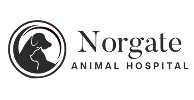Essential Tips for Ensuring Your Pet’s Healthy Diet
Proper nutrition is crucial for your pet’s overall health and happiness. As a responsible pet owner, providing a balanced and nutritious diet is key to ensuring your furry friend thrives. Here are some valuable tips to help you maintain a healthy diet for your pet. For expert advice and care, consider visiting Norgate Animal Hospital, where your pet’s health is the top priority.
1. Consult Your Veterinarian
Before making any changes to your pet’s diet, consult your veterinarian. They can provide personalized recommendations based on your pet’s age, breed, size, activity level, and specific health needs. This ensures that your pet receives the right nutrients in the correct proportions. Norgate Animal Hospital is always available to help you make informed dietary choices for your pet.
2. Choose High-Quality Pet Food
Selecting high-quality pet food is essential for meeting your pet’s nutritional needs. Look for reputable brands that use wholesome ingredients and adhere to standards set by organizations like the Association of American Feed Control Officials (AAFCO). Consider your pet’s life stage (e.g., puppy, adult, senior) when choosing food.
3. Understand Nutritional Requirements
Pets have unique nutritional requirements that vary based on species, breed, and individual factors. Dogs and cats, for example, have different dietary needs. Research or consult your vet to understand the essential nutrients—such as protein, fats, carbohydrates, vitamins, and minerals—that your pet requires for optimal health. Norgate Animal Hospital can provide detailed information tailored to your pet.
4. Provide a Balanced Diet
A balanced diet should include a mix of proteins, carbohydrates, fats, vitamins, and minerals. Proteins are essential for muscle growth and repair, while carbohydrates provide energy. Fats are a concentrated source of energy and aid in nutrient absorption. Aim for pet foods that provide these nutrients in appropriate proportions.
5. Avoid Overfeeding
Maintain portion control to prevent overfeeding, which can lead to obesity and related health issues. Follow feeding guidelines provided on the pet food packaging, and adjust portion sizes based on your pet’s age, activity level, and metabolism. Treats should be given in moderation and accounted for in the overall calorie intake.
6. Monitor Your Pet’s Weight
Regularly monitor your pet’s weight to ensure they are maintaining a healthy body condition. Your veterinarian can assess your pet’s weight during check-ups and provide recommendations if adjustments to the diet are needed. Avoid rapid weight changes, as these can indicate underlying health problems. Norgate Animal Hospital offers comprehensive weight management programs to help keep your pet in top shape.
7. Provide Fresh Water
Always keep fresh, clean water available for your pet. Proper hydration is crucial for digestion, temperature regulation, and overall health. Regularly clean your pet’s water bowl to prevent bacteria buildup.
8. Consider Special Dietary Needs
Some pets may have special dietary needs due to allergies, sensitivities, or medical conditions. Your veterinarian can recommend specialized diets or supplements tailored to address specific health concerns such as food allergies, joint issues, or kidney disease.
9. Avoid Harmful Foods
Certain foods can be toxic or harmful to pets. Avoid feeding your pet chocolate, onions, garlic, grapes, raisins, alcohol, caffeine, and xylitol (a sugar substitute). Additionally, bones, especially cooked bones, can pose a choking hazard or cause gastrointestinal issues.
10. Monitor and Adjust
Observe your pet’s overall health and behavior regularly. Changes in appetite, energy levels, coat condition, or stool quality could indicate dietary issues or health concerns. If you notice any changes, consult your veterinarian promptly for guidance. Norgate Animal Hospital is equipped to handle any concerns and provide immediate care if necessary.
In summary, maintaining a healthy diet for your pet is essential for their well-being and longevity. Consult your veterinarian for personalized recommendations, choose high-quality pet food, provide a balanced diet, monitor portion sizes, and keep fresh water available at all times. By prioritizing your pet’s nutrition, you’re investing in their overall health and happiness. Remember, a healthy diet is the foundation of a thriving pet, and Norgate Animal Hospital is here to support you every step of the way.
